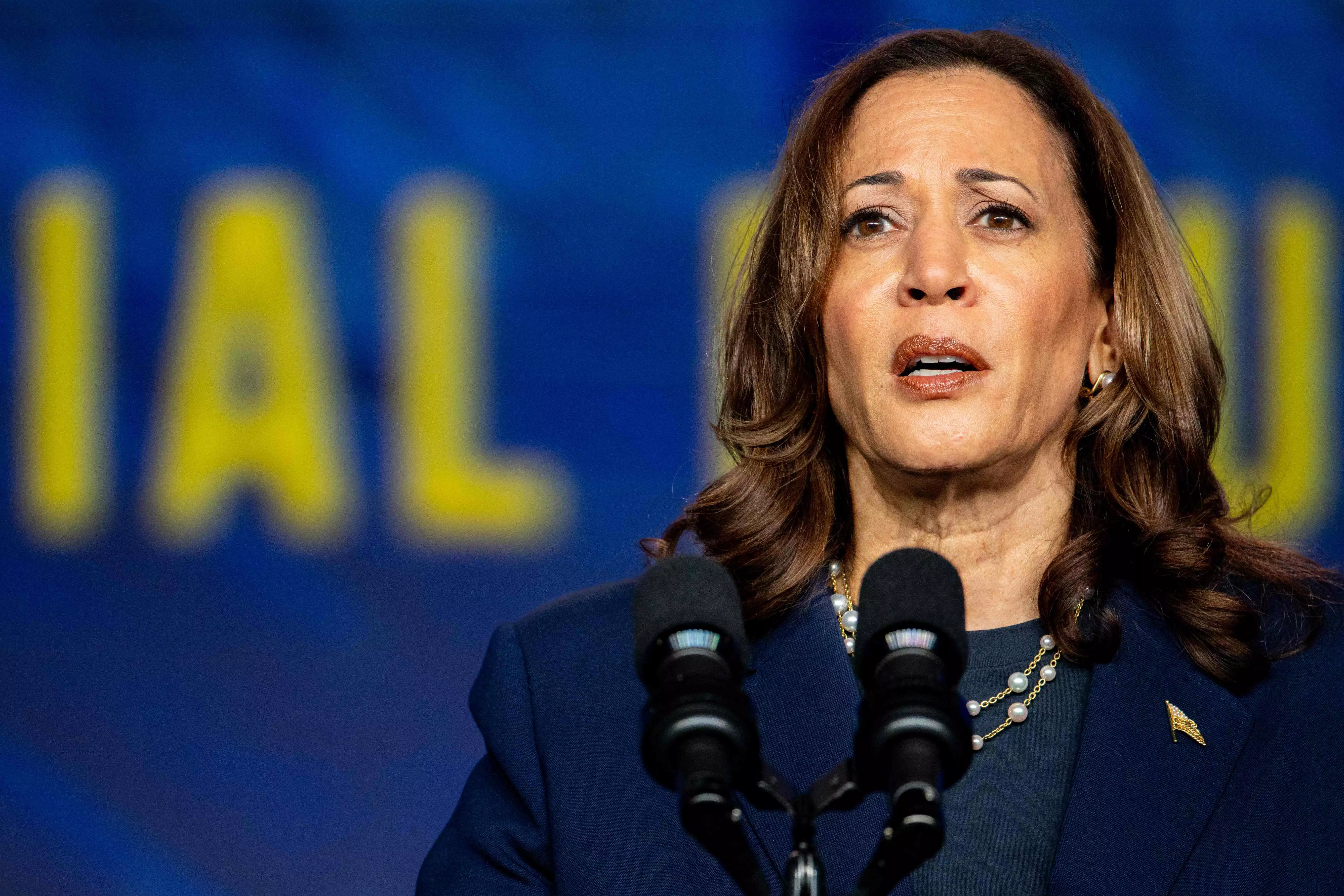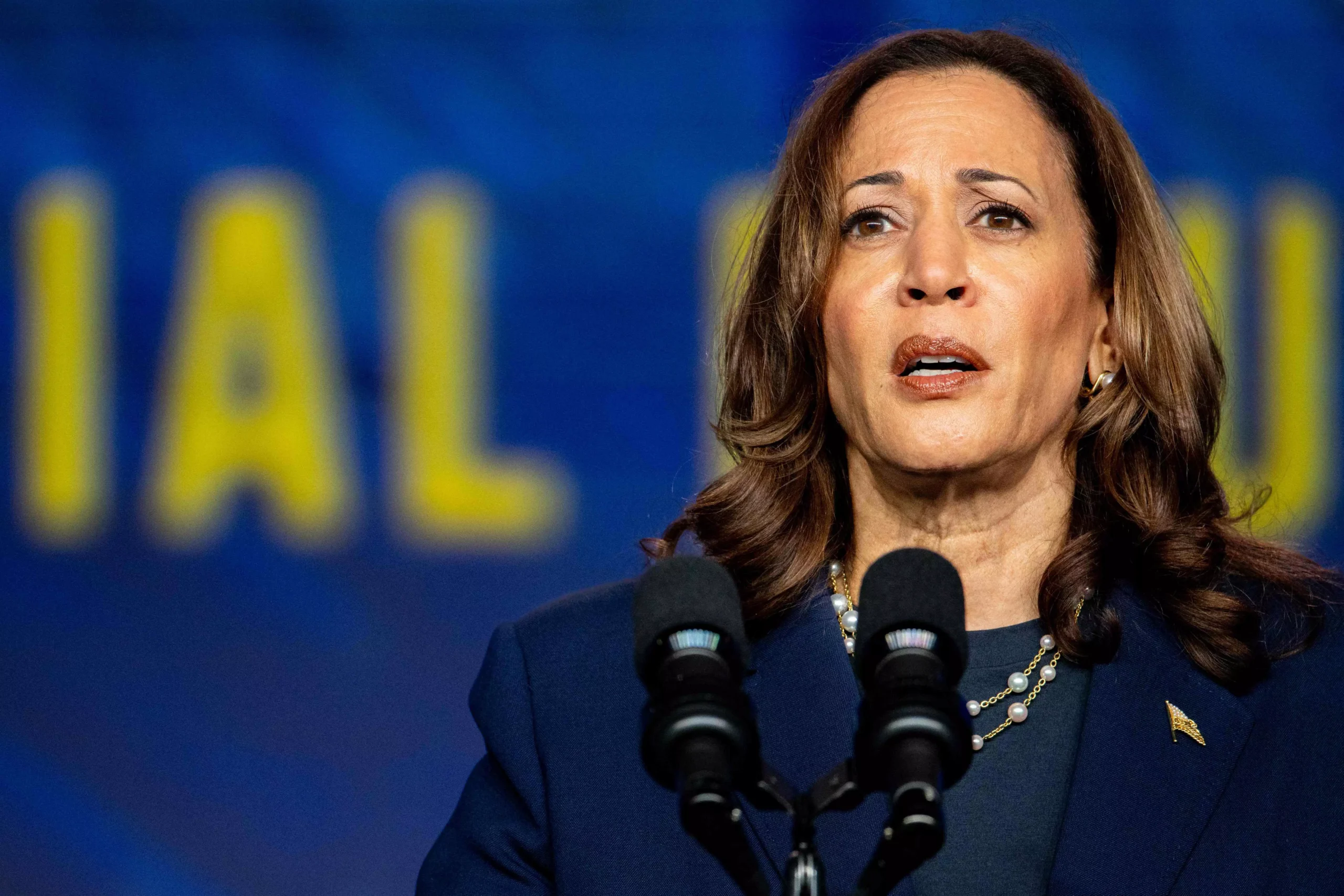
The Joe Biden-Donald Trump presidential debate on June 27 unleashed cascading events which eventually ended with President Joe Biden’s withdrawal from the race on July 21. In between came the assassination attempt on former President Donald Trump.
President Biden addressed the media to allay concerns about his physical and mental fitness for another term, but worsened matters with each appearance. The pressure mounted as big donors and even former House Speaker Nancy Pelosi and Hollywood icon George Clooney joined in the demands for his exit. The failed Trump assassination worsened matters as Mr Trump gained public sympathy and enthused his faithful.
The denouement was sudden as Mr Biden, confined to his seaside retreat due to testing positive for Covid-19, quietly released a letter on July 21 announcing his exit. Quickly thereafter, he endorsed his vice-president Kamala Devi Harris as his favoured replacement. She in turn acted with great dispatch to neutralise potential rivals and garner the support of a majority of the 3,636 delegates to the Democratic National Convention in Chicago on August 19-22.
Ms Harris has strengths and weaknesses. First, the element of surprise catches the Trump campaign geared to handling President Biden. Now they must quickly recalibrate and devise a new line of attack. Second, because she was not an overly pro-active vice-president, she can disassociate from the unpopular policy decisions of the Biden presidency. Third, being two decades younger than Mr Trump, the age argument, which was Mr Biden’s albatross, now hangs around Mr Trump’s neck.
On the negative side, she hails from California, and is thus easily labelled as a liberal. There is also finger-pointing that she got political patronage dating an older and powerful politician, Willie Brown, though he was separated from wife. Also, she faces the same gender bias that Hillary Clinton encountered in 2016. She also was labelled during the 2020 presidential primaries as an excessively tough enforcer of the law on African-American criminals as the district attorney of San Francisco (2004-11) and attorney-general of California (2011-17).
On policy issues, her strong defence of women’s reproductive rights should help her gain women’s support nationally. This is the reverse of the stand of J.D. Vance, Mr Trump’s running mate. Ms Harris has also been able to quickly distance herself from the Biden administration’s almost unconditional support to Israel on the Gaza war. As civilian casualties mounted, public opinion in the US, especially across premier university campuses, fractured. She signalled discomfort by skipping Israeli Prime Minister Benjamin Netanyahu’s address to the US Congress. She met him separately and apparently conveyed her unhappiness over the Israeli operations.
The bread and butter issue for Republicans, and especially Donald Trump, is immigration. They label her as the “tsar” of immigration when her role was limited to exploring the root causes of the problem. She went on her first foreign trip as vice-president to Guatemala in 2021 to study how migration could be blocked at the source. The Democratic riposte is that it was Donald Trump who blocked a bipartisan deal on the subject in the Congress. The Biden administration did slow down the border wall construction and stop the terrible practice of separating children from parents. But walls do not stop the movement of people. The solution lies in a mix of law enforcement and economic evolution of countries of Central and South America.
Ms Harris’ likely nomination elicited excitement in India. Jocularly, considering that Mr Vance’s wife is a Telugu, some called it an Andhra Pradesh versus Tamil Nadu contest. Levity aside, any person of Indian origin, and even less one of mixed race, born and brought up in the United States, will first think of US interests. Our permanent representatives to the United Nations, when Nikki Haley was the US ambassador, did not get any special treatment officially from her. However, at a social level, she was easier to engage.
However, Ms Harris has in the past stood for freedom and human rights. She supported, while she was a senator, an Indian-origin colleague whom external affairs minister S. Jaishankar had once rebuked by cancelling a meeting. As President, she would view occasional actions of the Indian government to compromise human rights and democratic institutions in the broader context of strengthening Indo-US relations. But personal comfort in dealing with the Indian leadership is a different matter. Thus, bilateral relations may not be visibly affected but, in her case, personal warmth may well evaporate.
Donald Trump, when last in office, was shrewdly managed by Prime Minister Narendra Modi, through a mix of flattery and public theatre. But a Trump presidency will always have unpredictable dimensions. In his latest interview with Businessweek, he is still fixated on his Harley Davidson story and Indian motorcycle imports. He recounts how company executives, when meeting him in the White House, had cribbed about the difficulties of doing business. He adds: “I said ‘You mean like India’. India’s an amazing abuser. One of the best.” The story proceeds: “Let me guess: India’s tariffing you, right?” The story continues with Indian tariffs of 200 per cent imposed to compel them to open an Indian plant, thereby shutting the American one. The facts: Indian duty on motorcycle imports was 50 per cent. Harley announced an Indian plant in 2010, six years before Mr Trump entered office. Talleyrand’s quote about a French dynasty applies aptly to Donald Trump: “The Bourbons have learnt nothing and forgotten nothing”. In Mr Trump’s case, it also covers all fact-free stories.
India-US relations are close and multidimensional, but the Indian commitment to strategic independence jars the Americans occasionally. Prime Minister Narendra Modi’s recent visit to Moscow as the 75th anniversary summit of Nato opened in Washington is one such example.
India will manage bilateral relations with whoever gets elected as the US President. But geopolitically, a Trump presidency will cause far more disruption. He will blindly back Israel, increasing the possibility of an Israel-Iran conflict. The situation has already worsened with the killing of the top leaders of Hamas, in Iran, and of Hezbollah in Lebanon.
His solution to the Ukraine war rests on the acceptance by Ukraine of the status quo. This can cause fissures in Nato. Mr Biden had largely followed Mr Trump’s China policy which Mr Trump will happily resume. The European nations and US allies in the Pacific, including Japan, are already mentally preparing for a world with an isolationist US. The Trump-proofing of foreign policies is perhaps underway even in China and Russia. Hopefully, South Block is similarly attuned.
